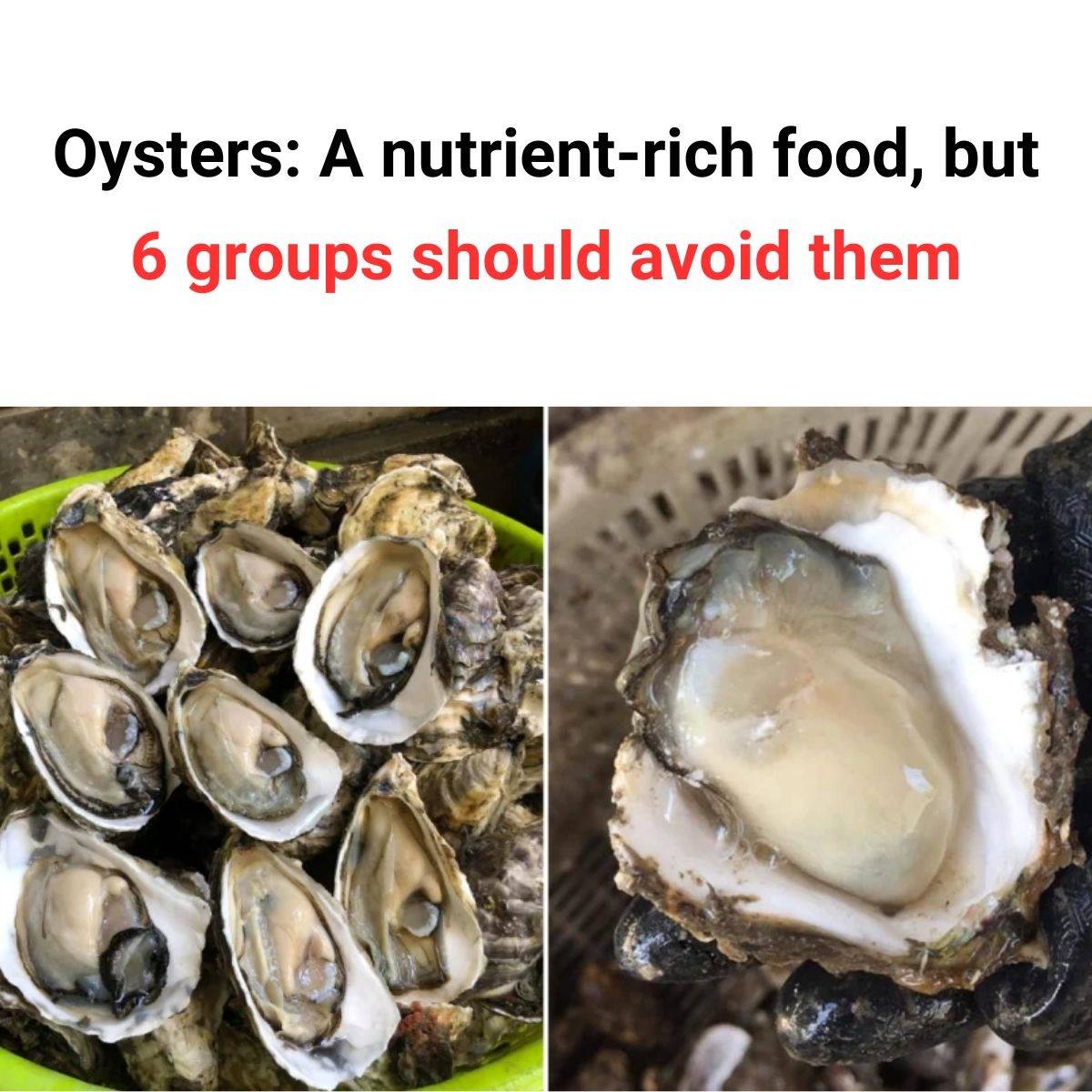ADVERTISEMENT
Oysters: A Nutrient-Rich Superfood – But 6 Groups Should Think Twice Before Eating Them 🦪⚠️
Oysters are often hailed as a luxurious delicacy and a nutritional powerhouse. Packed with essential vitamins, minerals, and high-quality protein, they’ve earned their reputation as a superfood from the sea. Rich in zinc, iron, omega-3 fatty acids, and vitamin B12, oysters can boost immunity, support heart health, and even enhance brain function. But despite their impressive health benefits, they’re not for everyone.
Whether eaten raw on the half shell or cooked into sophisticated dishes, oysters can pose certain health risks—especially to people with specific health conditions or vulnerabilities. Here’s what you need to know before diving into your next oyster platter.
🦪 What Makes Oysters So Healthy?
Oysters are low in calories but high in nutrients:
- Zinc – Boosts immune function and helps with wound healing
- Vitamin B12 – Supports nervous system and energy levels
- Iron – Essential for red blood cell production
- Omega-3 fatty acids – Promote heart and brain health
- High-quality protein – A lean source of essential amino acids
These benefits make oysters an excellent addition to a balanced diet—for most people.
⚠️ 6 Groups Who Should Avoid Oysters
Despite their health appeal, oysters aren’t suitable for everyone. Here are six groups who should avoid or limit oyster consumption:
1. Pregnant Women
Raw or undercooked oysters can harbor bacteria like Vibrio vulnificus or viruses such as norovirus, which are particularly dangerous during pregnancy. These pathogens can lead to foodborne illness, miscarriage, or complications.
👉 Safe alternative: Only eat fully cooked oysters if you’re pregnant.
2. People with Weakened Immune Systems
Those undergoing chemotherapy, living with HIV/AIDS, or taking immunosuppressive medications are at higher risk of serious infection from bacteria in raw oysters.
👉 Why? The body may not be able to fight off Vibrio or other harmful microbes, potentially leading to life-threatening illness.
3. Individuals with Liver Disease
People with chronic liver disease are especially vulnerable to Vibrio vulnificus infection, which can enter the bloodstream and become rapidly fatal.
👉 Important note: Even a small amount of contaminated oyster can be deadly for someone with liver problems.
4. Children and Older Adults
Both young children and seniors have weaker immune defenses, making them more susceptible to foodborne illnesses, including those caused by raw oysters.
For Complete Cooking STEPS Please Head On Over To Next Page Or Open button (>) and don’t forget to SHARE with your Facebook friends
👉 Safer option: Choose cooked oyster dishes like grilled or baked oysters.
